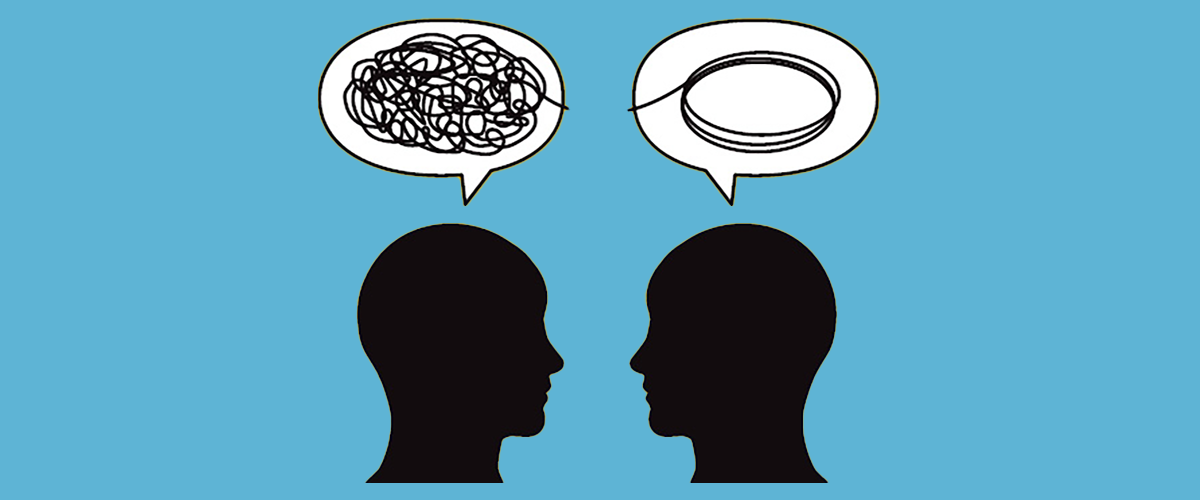
The left hemisphere of the brain has different ‘language centers’ that are all connected to each other and to other parts of the brain. If these language centers developed normally but are damaged by a stroke or TBI, aphasia can result. Aphasia causes difficulty with:
How does someone get aphasia? The most common cause is a stroke that affects specific parts of the left hemisphere. Aphasia can also result from a traumatic brain injury (TBI), brain tumor, aneurysm or encephalitis. Aphasia can occur at any age, to any gender or nationality, but most people have never heard of aphasia until they or someone they know receive that diagnosis.
There are many different types of aphasia. The type of aphasia someone has depends on the part of the left hemisphere that has been damaged. Some people speak in sentences that don’t make any sense, some people can only say a few words or sounds, and some people speak in sentences but pause a lot to find the word they want to say. Even within the same type of aphasia, no one will look exactly the same. The type of aphasia someone has is based upon the differences between certain language skills and their severity.
Aphasia ranges in severity. Aphasia can affect someone from a mild degree to a very severe degree. Severity depends on several factors, such as the size of the lesion (brain damage), where the lesion occurred, how soon medical treatment began, age, education, physical issues from the lesion, and prior health issues. Each person with aphasia is unique and has different strengths and weaknesses, no matter how severe their deficits.
Does aphasia affect intelligence? It’s important to know that aphasia is not an intellectual or memory disorder like a developmental disability or dementia. While retaining their intelligence and knowledge, the person’s ability to access and express that intelligence through language is impaired. The majority of tests to measure intelligence or memory rely upon written or spoken word processing and expression, which are heavily affected by aphasia.
Can someone with aphasia continue to improve past 6 months? Aphasia is a chronic condition without a cure, but your loved one’s communication skills can greatly improve over time with expert intensive treatment. Due to the brain damage that must occur for someone to have aphasia, language skills after therapy will not be the same as before the brain damage. Continued progress is always possible and there is no plateau in recovery.
- Speaking and understanding speech, especially in noisy, fast environments
- Recognizing and understanding written words
- Writing/typing/texting
- Finding the right words and saying them
- Using gestures and other means of communication
How does someone get aphasia? The most common cause is a stroke that affects specific parts of the left hemisphere. Aphasia can also result from a traumatic brain injury (TBI), brain tumor, aneurysm or encephalitis. Aphasia can occur at any age, to any gender or nationality, but most people have never heard of aphasia until they or someone they know receive that diagnosis.
There are many different types of aphasia. The type of aphasia someone has depends on the part of the left hemisphere that has been damaged. Some people speak in sentences that don’t make any sense, some people can only say a few words or sounds, and some people speak in sentences but pause a lot to find the word they want to say. Even within the same type of aphasia, no one will look exactly the same. The type of aphasia someone has is based upon the differences between certain language skills and their severity.
Aphasia ranges in severity. Aphasia can affect someone from a mild degree to a very severe degree. Severity depends on several factors, such as the size of the lesion (brain damage), where the lesion occurred, how soon medical treatment began, age, education, physical issues from the lesion, and prior health issues. Each person with aphasia is unique and has different strengths and weaknesses, no matter how severe their deficits.
Does aphasia affect intelligence? It’s important to know that aphasia is not an intellectual or memory disorder like a developmental disability or dementia. While retaining their intelligence and knowledge, the person’s ability to access and express that intelligence through language is impaired. The majority of tests to measure intelligence or memory rely upon written or spoken word processing and expression, which are heavily affected by aphasia.
Can someone with aphasia continue to improve past 6 months? Aphasia is a chronic condition without a cure, but your loved one’s communication skills can greatly improve over time with expert intensive treatment. Due to the brain damage that must occur for someone to have aphasia, language skills after therapy will not be the same as before the brain damage. Continued progress is always possible and there is no plateau in recovery.
